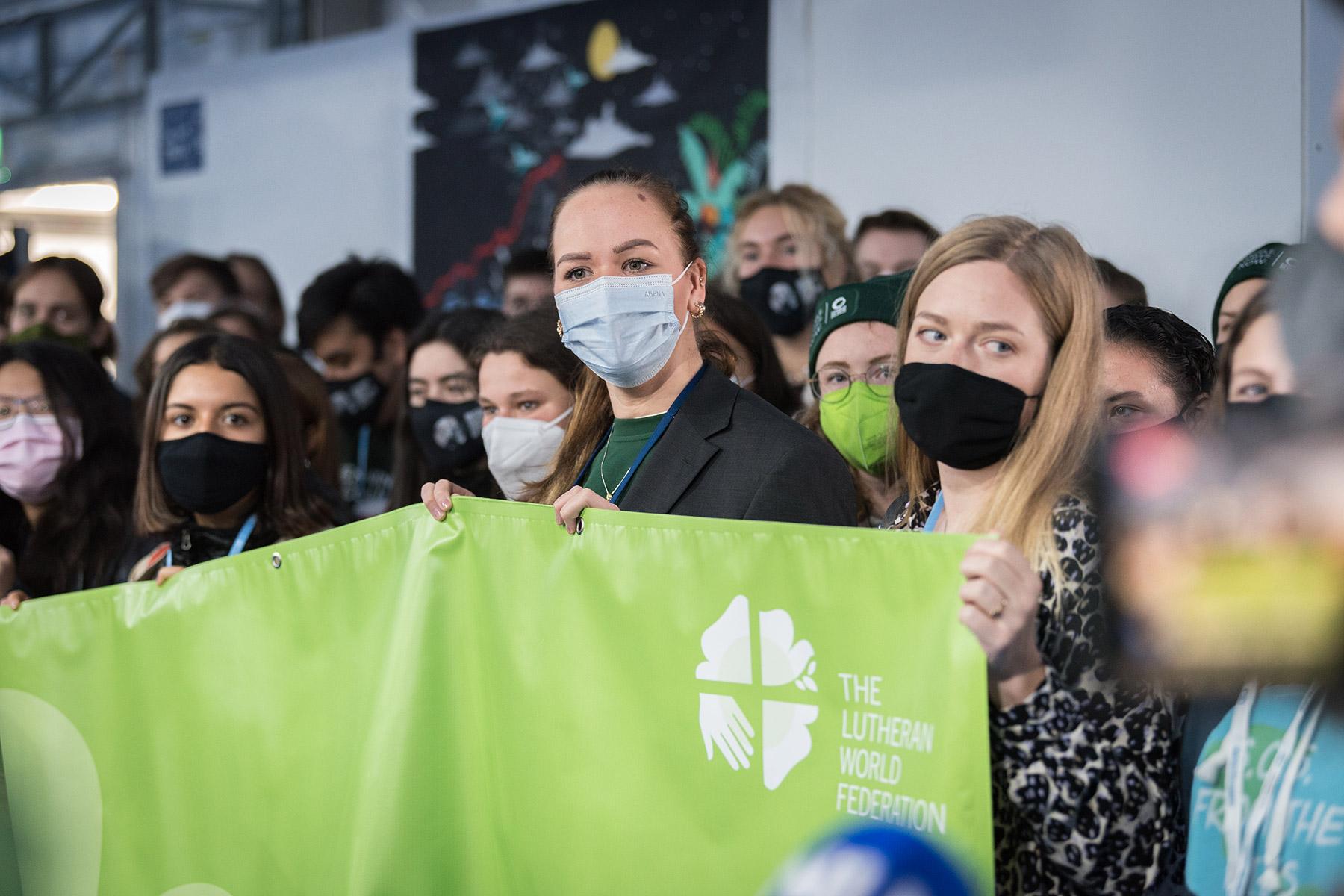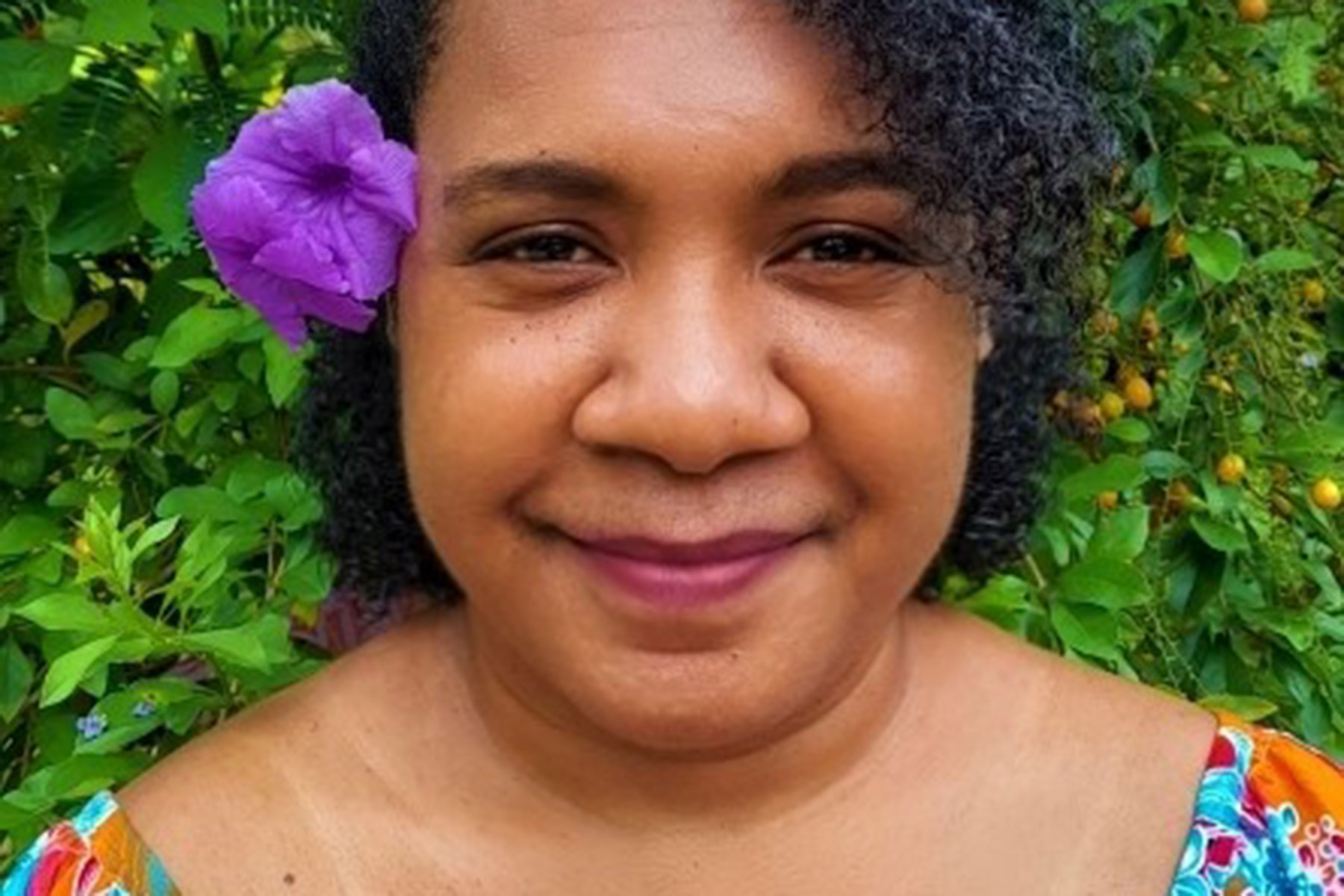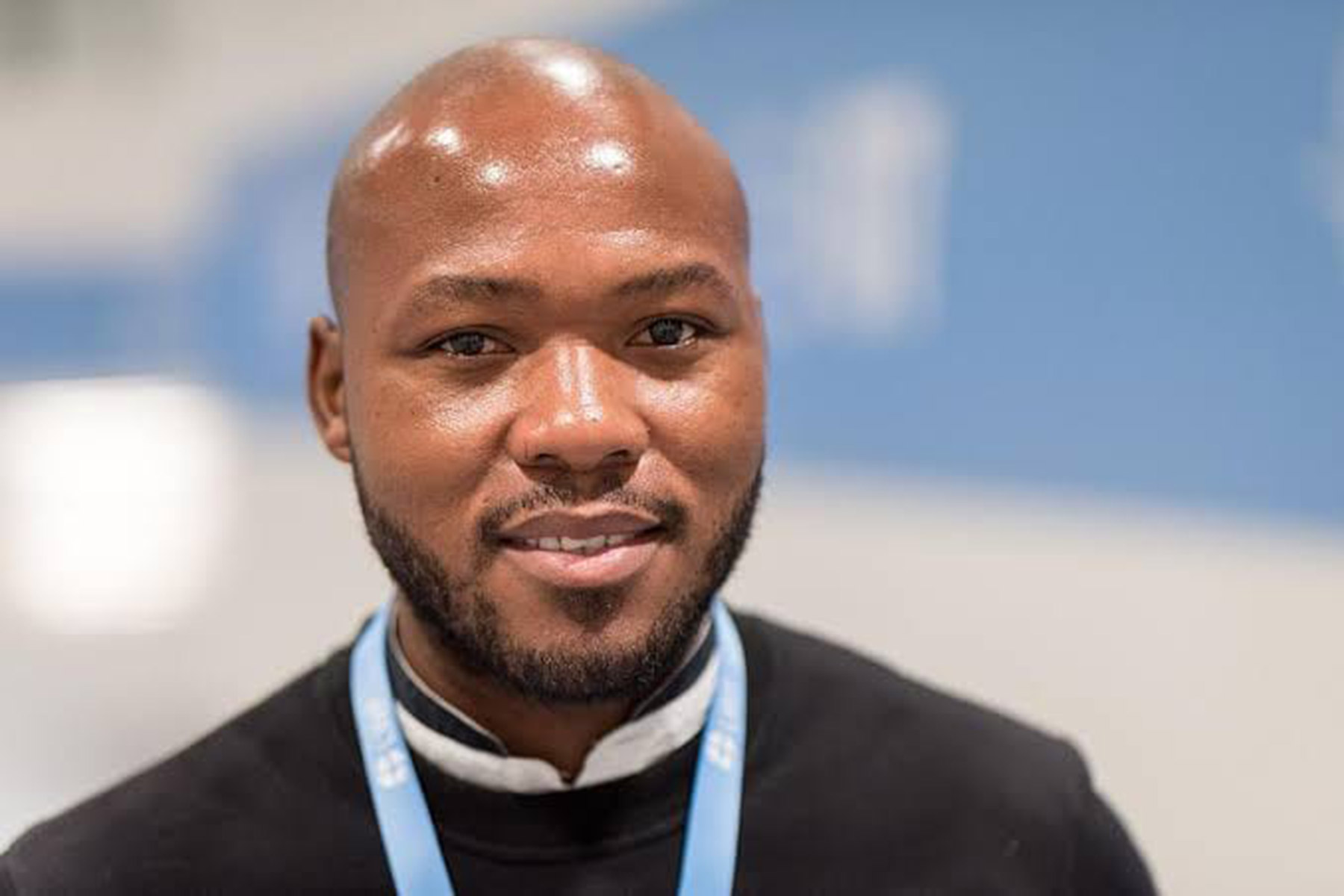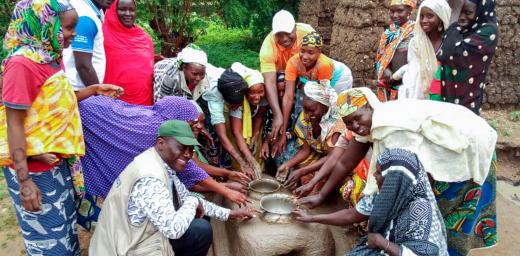CSW66: Young people call for action not words

Demonstrators at a âYouth and Public Empowerment Dayâ during COP26 in Glasgow last November. Photo: LWF/A. Hillert
“Invest in the future for climate justice” say youth delegates to Commission on the Status of Women
(LWI) - Five young climate activists have called on world leaders to listen and engage meaningfully with women and youth who are worst affected by climate change. Their call came during a 21 March event featuring delegates to the UN’s 66th Commission on the Status of Women which is focused on women’s empowerment in the context of climate change and environmental policymaking. Organized by the Lutheran World Federation (LWF), the International Federation of the Red Cross and Red Crescent Societies, the Kenyan Red Cross and the Evangelical Lutheran Church in America, the online event was entitled ‘Investing in the future: Youth-led climate justice action’.
The young delegates from Africa, Europe, Latin America and the Pacific shared how rising sea levels and changing climate patterns are already causing devastation to the lives and livelihoods of people whose voices are rarely heard in the places where policy-making happens. Daphney Leola Kiki, a native of Papua New Guinea who is studying at the Pacific Theological College in Fiji, spoke of the way ancient cultures and traditional practices in her region are disappearing as islanders are forced to relocate to find new homes.

Daphney Leola Kiki, CSW66 delegate from the Evangelical Lutheran Church of Papua New Guinea
“When indigenous people move away from their ancestral lands, they also lose their spirituality and young people grow up without a connection to their culture,” said Kiki, a member of the Evangelical Lutheran Church of Papua New Guinea. She coordinates the youth section of a project called Reweaving the Ecological Mat, designed to encourage people to return to traditional and more sustainable ways of living and working the land.
Zuzanna Welman from the Evangelical Church of the Augsburg Confession in Poland highlighted the importance of such small, local initiatives, noting that “every big global movement starts locally." As a member of the LWF delegation to the COP26 summit in Glasgow last November, she said she and her colleagues were able to voice their concerns at that global event but are now back in their local contexts, working with young people in the churches to make a difference at regional and national levels.
Every big global movement starts locally.
Doris Mwikali, national youth climate action program head at the Kenya Red Cross, reiterated that “climate education is foundational for addressing the climate crisis.” Many young people in her region know nothing about the Paris Agreement, or how their actions can help “to hold leaders accountable.” A major challenge, she continued, is the problem of “tokenism,” where young people are not given a meaningful seat at the table, but are instead invited to sit at “a kid’s table” outside of the spaces where climate solutions are being debated and drawn up.
Speaking from the Latin American context was Romario Andrés Dohmann, former youth coordinator of the Evangelical church of Rio de la Plata in Argentina. He spoke of the drought and wildfires which have recently destroyed thousands of acres of rainforest in his region, home to South America’s second largest river basin. As leader of a church-run reforestation project, he has been overseeing ambitious efforts by young volunteers to plant 180.000 trees by the end of 2022. During environmental workshops, young people are also encouraged to “take small actions against voracious capitalism” by buying and eating local food and produce, he added.
Youth must be included in discussions on sustainable climate solutions: Message to CSW66 from The Lutheran World Federation on Vimeo.
LWF General Secretary Rev. Anne Burghardt also spoke at the event, calling on the international community “to ensure that knowledge, experiences, differentiated needs and capacities of women, girls and youth are incorporated into the creation, design and execution of programs to address climate change.” She stressed that the LWF sees climate justice as intergenerational justice, working to affirm the God-given dignity of every person and the integrity of creation. “The climate crisis has a disproportionate effect on youth and their future prospects, yet they are often left out of discussions to find sustainable and equitable climate solutions,” she said.

Khulekani Magwaza from the Evangelical Lutheran Church in Southern Africa . Photo: LWF/Albin Hillert
The moderator of the event was another well-known youth climate activist, Khulekani Magwaza from the Evangelical Lutheran Church in Southern Africa. An LWF Council member and youth delegate at the last two COP summits, he works as the energy and climate justice coordinator at the Southern African Faith Communities Environment Institute. He endorsed the appeals of the panelists who urged world leaders to “put pride and personal interests aside” and take more urgent action on the climate crisis.
Decisions must be taken on the basis of knowledge drawn from the practical experience of those suffering the effects of the crisis, Dohmann insisted. Young people are already acting to address these issues and the churches are well placed to understand and build resilience in those local communities, Mwikali said, urging governments to “put in the money to amplify these best practices.” “Take action now,” Kiki concluded: “We are suffering now, so we need your action, not your politics.”
LWF/P. Hitchen





